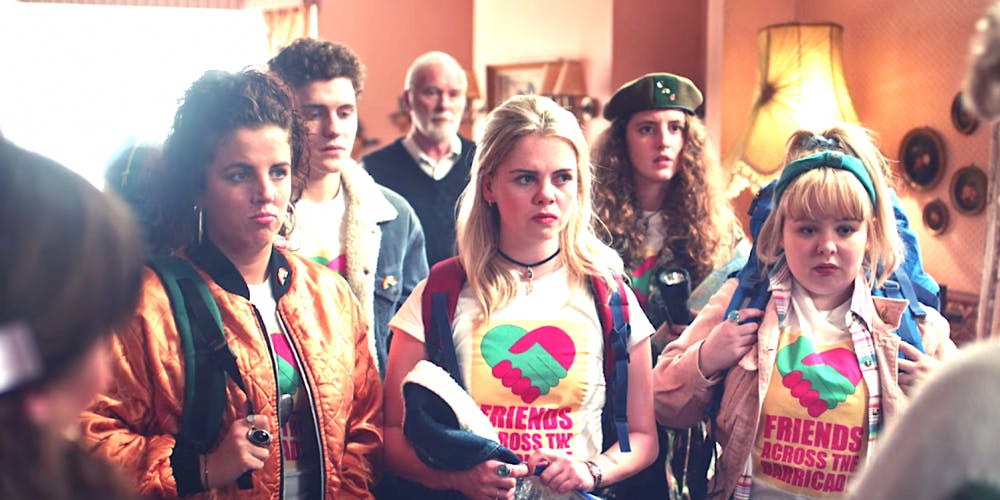By Ariel Steinsaltz
Staff Writer
While two groups of teenagers have a meetup that makes them reconsider their prejudices against each other, one of their mothers gets obsessed with a kitchen bowl. This dichotomy between the grand and the mundane starts off the second season of a show that often perfectly balances the two.

On August 2, Netflix released the second season of “Derry Girls,” a Northern Irish show that follows the lives of five teenagers living in Derry, Northern Ireland in the 1990s during the period known as “The Troubles,” decades of violence between the Catholics and the Protestants.
The show has five main characters who attend a Catholic girls’ school: Erin (Saoirse-Monica Jackson), her cousin Orla (Louisa Harland), Clare (Nicola Coughlan), Michelle (Jamie-Lee O’Donnell) and Michelle’s English cousin James (Dylan Llewellyn), who attends their school because they felt that he would be beaten up at the boys’ school on account of him being English.
Season 1’s six episodes saw the girls go through various teenage misadventures in the country’s fraught political landscape, while season 2 continues this trend with episodes revolving around events like a meetup with a group of Protestant boys, the girls sneaking out to a concert and former President Bill Clinton’s 1995 visit to Derry.
The new season also continues the show’s trend of perfectly balancing the comedic tone and lighthearted teenage antics with the darker tone of the circumstances in which these characters are growing up.
The season also ends on a touching, heartfelt note that reinforces the theme so often seen in the show — Despite all of the political problems occurring in their world, the teens and those around them still have hope for the future. It’s a theme that resonates now, even for those living out of the context in which the show is set.
The characters go on a journey that continues their arcs from the first season, and the growth they’ve gone through is remarkable given that the combined total runtime for both seasons is less than 300 minutes.
Fundamentally, these characters are still the same people, and their personalities make the show a delight to watch, such as Orla’s quirkiness and Michelle’s total disregard for authority.
The antics that the girls and James get up to, such as sneaking out of the house and going to prom, reinforce the fact that they are still teenagers, and many of those ideas are relatable to anybody who’s been a teenager.
Everything that happens to these characters feels real, and gives it broad appeal despite the specificity to its setting, such as when they bring a suitcase full of vodka onto a bus only for it to be boarded by their teacher or accidentally feed pot-filled scones to a group of people at a wake. It’s not only hilarious but captures the rebelliousness of being a teenager that not everyone might have experienced, but most can understand.
The show is witty and clever, the actors are perfect and the comedy is hilarious. My only criticism of Season 2 is that I wish it had been longer.







